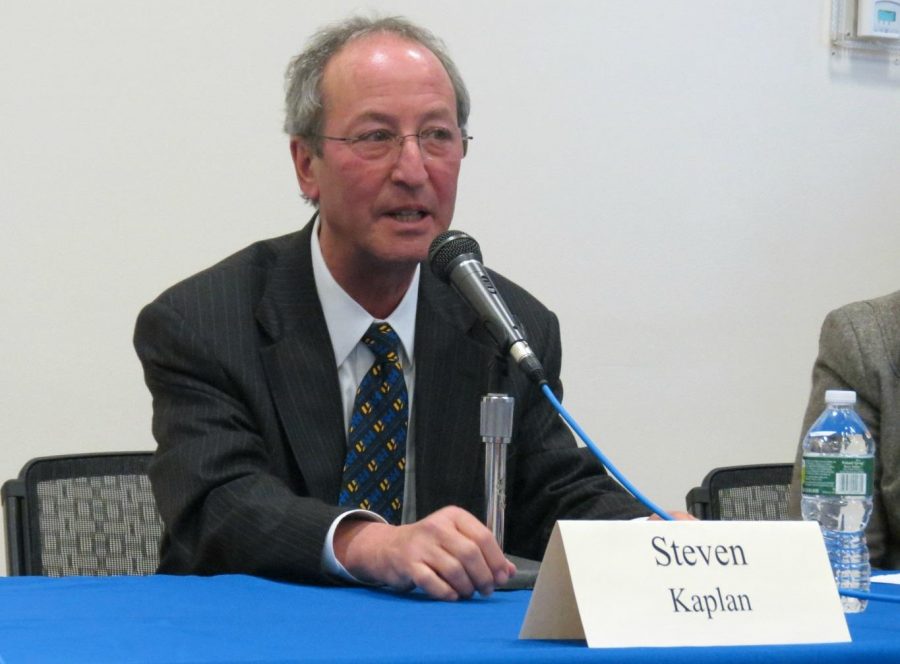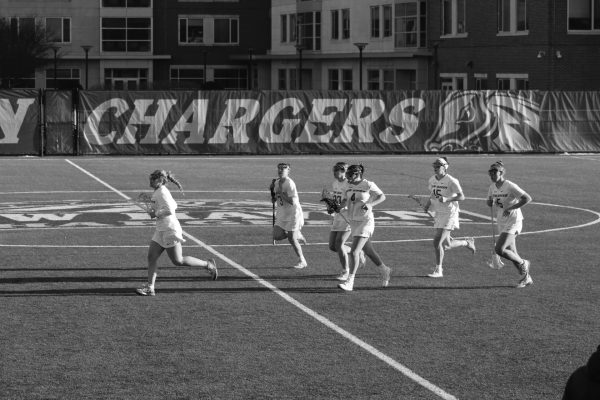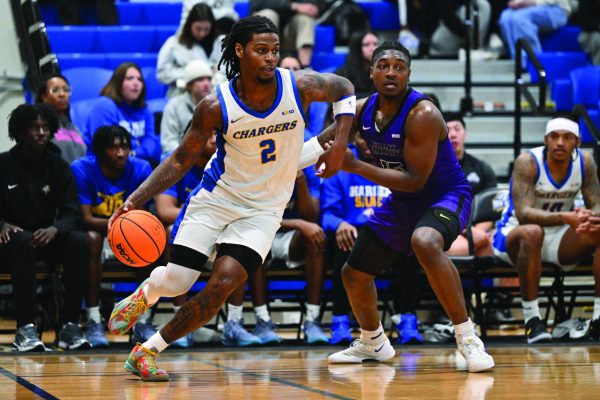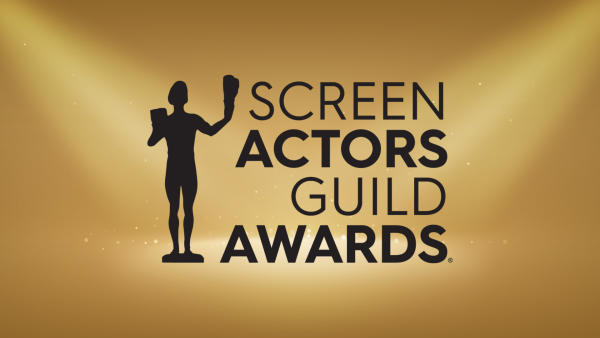President Kaplan on Saudi Arabia Petition, Student Feedback and UNH Brand
This is part two of our fall Q&A with President Kaplan. See part one here.
I wanted to get your opinion on the issues surrounding the Saudi Arabia school. The letter was addressed to you, so I wanted to get your thoughts on that.
It’s like most issues, it’s a lot of gray – not on the human rights side, I mean I understand where those people are coming from, and you can print this, when we embarked on this cooperative agreement, I needed board approval and I shared probably 20-25 articles out of the New York Times, the Wall Street Journal, on human rights violations in Saudi Arabia and I’m very aware of them and some of them do trouble me, as they do others, so I was very open about that with our board and we discussed those things. There’s certain issues around women’s rights that concern me but there has been progress around some of these areas in Saudi Arabia. So, you know, it’s not black and white, I mean, I understand where the people who were critical were coming from, but I also think that standing on the outside and judging is a lot easier than trying to put yourself in the shoes of other individuals and understand things. I mean, as far as human rights violations, there are a lot of people in a lot of other countries that would say that this country, the United States, violates human rights. In other words, do I agree with everything Saudi Arabia does? No. Do I agree with everything we do in this country? No. I’m not comparing the two, obviously. But I also think that Saudi Arabia is an ally of ours, this country has made a commitment to them. We have many allies in this country that we don’t necessarily agree with everything they do, but we consider them allies because we’re hoping that we learn from each other. I think as an educational institution, especially in training law enforcement, which is what we’re doing there, I think…instead of boycotting the country, which is what these people are proposing, I think trying to enlighten law enforcement, as what we do domestically and what we should be doing abroad, I think we’re bringing value there.
How much oversight does the university have over the programs that are being taught there?
Oh, substantial. We’re actually involved…we hire the faculty, everyone that’s teaching there are our faculty. They’re being funded by the Saudi government, but we select them. We made it a condition that women can teach in the program, which was unprecedented, so we have a lot of control in the program.
And the people that were circulating that petition against us, again while I understand their position, in many ways it didn’t consider something you just asked, which is we’re not just doing this blindly. We’ve thought this through, we…I know most of the generals we’re working with in the Saudi military and, frankly, they’re some of the finest people I’ve ever met. So, you know, it’s not like we’re over there working with tyrants, which is the stereotype. And, you know, I’m dealing with a few donors from Saudi Arabia, who are among the smartest, most enlightened people I’ve ever met. I guess what I’m trying to say is, it’s very easy when looking at any political situation, here or abroad, to stereotype. It’s much more difficult, but also much more rewarding when you try to understand. It doesn’t mean you agree and it doesn’t mean you have to agree…if you look at how our own security measures have changes in this country since 9/11, right, there are people in other countries that don’t understand that, because they didn’t experience what we experienced here.
Another thing we talked about in April was the teacher evaluations that students submit and how you wanted to see some changes with those. Have you had a chance to look over that and see if there were any changes that could be made?
On our side, yes, you know, the provost has been working with the deans who are working with the faculty to make sure we are much more responsive to any concerns that emerge in the evaluations. What I don’t think is happening still – I don’t think, in some cases, the students are themselves taking the evaluations as seriously as they should. And they’re certainly not intended as a vehicle for venting, right, although they become that. But they’re intended as a developmental tool for faculty and I think students could actually do a better job, not just here but at any university, in letting us know what they’re really looking for in the classroom, and I don’t mean in terms of a popularity contest, but are there teaching methodologies that we’re not employing that we should? Are there subjects in a class that we’re not covering but we should? But especially in terms of teaching methodologies and delivery. I mean, your whole generation learns much differently than any of those that are in the classroom teaching. And the more they hear from students about what you think is valuable in terms of your learning styles, the use of technology, the better it is for us because we can then make adjustments.
Do you think that you have a good enough grasp on what students are looking for out of their college experience?
That’s a really good question. Getting back to what I just said, I would say yes, I and the other administrators and the faculty, think we know what students are looking for, but it would be pretty presumptuous if I said we did know. If I think of my own kids, my middle daughter just turned 34, and she reminded me just not long ago, that when she was in junior high school, she had to go to the library, and sit down and go through books to find what she needed to write a term paper, right? And she’s not that old. The world has changed, now she’s 34, now some of the students that are coming in here grew up with a much different notion of how you write a research paper and what’s available, right? So, yeah, I think we think we know what your needs are but we have a lot to learn. We need to get students to come to open discussions and really tell me and the administration, the deans, the faculty, what we can be doing to better meet your needs. And I think this new innovation center, is being designed to meet the learning styles of this generation of students. But we need to learn from you, it’s not a one-way street, you shouldn’t just be learning from us.
The university is going through a big rebranding push. What do you personally believe that the university’s message should be?
What it is. Our message, our brand is “success starts here.” And this is a school…you know, I’m out meeting with a lot of our alumni, and if I’d look at the…I’ve been at four universities, five if I include the German university that I worked at, and none of them, including the University of Virginia…I’ve not been at a school that’s produced the volume of successful individuals that we produce here. And success is not just defined by how much money you make, but by what you actually achieve in your given career and your lifetime goals. So, if you look at the incredible success of our students in law enforcement, if you look at the incredible success of our students in business and engineering, then I think the brand “success starts here” is appropriate. And it is who we are, and again it depends on how you define success. It’s not just about how much money you make, but how much good you do, what kind of impact you have, what kind of life you lead, and I think we’re pretty darn good at making sure people excel in all those categories.

Glenn Rohrbacker is a junior at the University of New Haven studying communications with a concentration in journalism and minors in Political Science...










